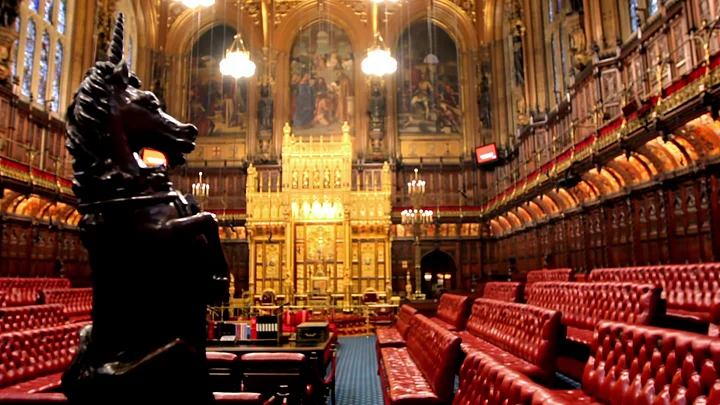A debate on the issue of "freedoms of non-governmental organisations, academics and other groups in India" was held in the Britain's House of Lords on Monday, 16 March.
Peers in the House of Lords appealed to UK Prime Minister Boris Johnson to discuss issues related to democratic freedoms coming undone in the country with Indian Prime Minister Narendra Modi, during his visit to New Delhi next month.
The ‘India: Restrictions on Freedom’ debate in the Upper House of UK Parliament was called by crossbench peer Lord Richard Harries on Monday.
Foreign, Commonwealth and Development Office (FCDO) minister Lord Zac highlighted the close ties between the two countries, which allows Britain to raise issues as part of a continuous dialogue.
Lord Zac further pointed to a "very deep and broad relationship" with India, with a thriving trade and investment partnership and cooperation on defence which makes the two countries a "force for good in the world".
Lord Goldsmith said that their approach had always been to raise any concerns directly with the Indian government. He added that they will continue to engage India on the full range of human rights matters and raise whatever concerns they may have, including at the ministerial level.
Stressing that Prime Minister Johnson will be visiting India shortly, Goldsmith said that it will be an opportunity to discuss a very wide range of bilateral and multilateral issues directly with the Indian government.
He went on to add that specific concerns will be raised by the prime minister directly with the Government of India, as one would expect of a close friend and partner.
The Lords debate comes a week after a debate in a House of Commons committee room on the issue of farmers' protests in India over the three contentious farm laws passed in September 2020.
India, however, has defensively told Britain that the country's MPs should cease "vote bank politics" by misrepresenting events happening in India.
In the House of Lords debate, around eight cross-party peers called on the UK prime minister to discuss issues such as "the closure of Amnesty International India and the freezing of its accounts," the deteriorating situation in Kashmir and the "imprisonment of journalists and the fear of persecution felt by non-Hindu minorities, Dalit activists, NGOs and all those campaigning against human rights violations."
Lord Howard Flight, a Conservative Party peer, emphasised that until recently India had upheld the democratic principles and traditions she inherited from the UK. However, it was now observable that the Indian government had, in a number of areas, restructured democratic freedoms.
Lord Roy Collins, an Opposition Labour Party peer, emphasised that the UK’s strong relationship with India was built on trust and mutual respect which should give the UK government confidence to play the role of a critical friend and be able to stress the importance of a free civil society in a democracy.
Lord Goldsmith responded to all the issues raised by pointing to regular exchanges with the Indian High Commission in London and the Indian government.
He reiterated the UK government’s stance on Kashmir and said that they were concerned by the lack of communication between India and Pakistan and the impact it has on tensions, but it was not for the UK to "prescribe a solution or act as a mediator."
The UK government called the issue an “internal matter” for India, and said that debates in Parliament are the nature of its parliamentary democracy.
The Indian government, however, was unhappy over the House of Commons debate as it saw it as “gross interference in the politics of another democratic country.”
Foreign Secretary Harsh Vardhan Shringla conveyed India's strong opposition to the British High Commissioner in New Delhi on 9 March, as an "unwarranted and tendentious" discussion on the farmers’ protest in the UK Parliament.
(With inputs from PTI)
(At The Quint, we question everything. Play an active role in shaping our journalism by becoming a member today.)
